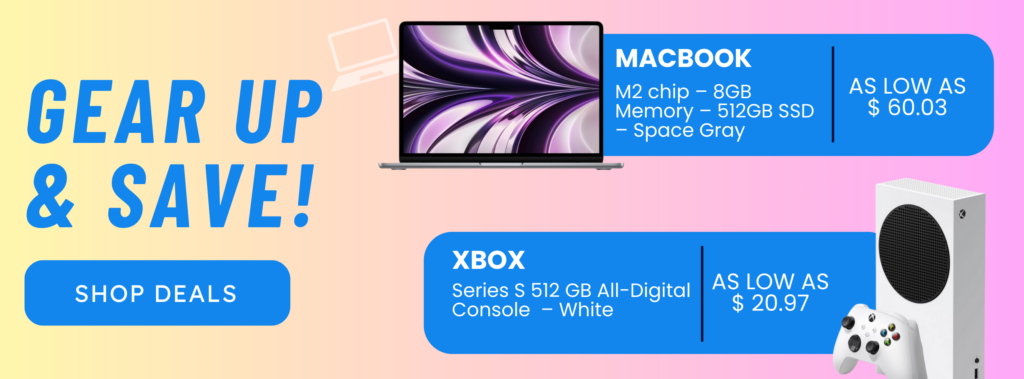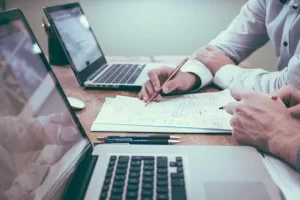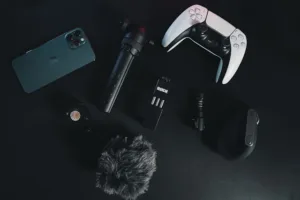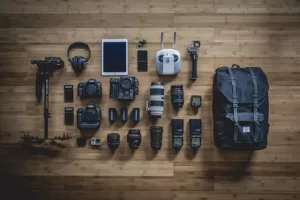Hey there young entrepreneurs! Today, we’re diving into a topic that’s crucial for our small businesses: office equipment. Whether it’s fancy printers or sleek laptops, having the right gear can make or break our daily grind. So let’s understand what could be the better option for your new business – lease or buy?
What is Equipment Leasing?
First things first, let’s demystify equipment leasing. It’s like renting but for business gear. Instead of dropping a ton of cash upfront, you pay a monthly fee to use the equipment. Pretty good, right?
Let us give you an example. Imagine you’re starting a graphic design studio. You need top-of-the-line computers and software. Instead of shelling out thousands upfront, you could lease the equipment for a manageable monthly fee. That means more cash in your pocket for marketing, hiring, and other expenses.
Learn more: How Does Lease to Own Work? Benefits of Electronics Leasing
How Does an Equipment Lease Work?
1. Identifying Equipment Needs:
First things first, you figure out what cool gadgets your business needs. Whether it’s laptops, printers, data storage devices, or LCD screens, make a list of your must-haves.
2. Choosing a Leasing company:
Next up, you look for leasing companies that offer the stuff you need. Check out a bunch of options to find the best deals and services.
Learn more: How To Find the Right Electronics Leasing Company in 2024
3. Negotiating Terms:
Negotiate with the leasing company on things like the duration of the lease, how much you’ll pay monthly, and what happens when the lease ends (eg., purchasing options or equipment return).
4. Signing the Lease Agreement:
When you’re happy with the plan, it’s time to put pen to paper. You sign that lease agreement and make it official. This document outlines the rights and obligations of both the lessee (you) and the lessor (leasing company).
5. Delivery:
Upon signing the lease agreement, the lessor delivers the equipment to the lessee. Then you check it to make sure it’s all good to go, and once you are happy, the lease term officially begins.
6. Making Lease Payments:
Now it’s time to start the lease. Every month, you pay the lease amount to keep the gear. These payments cover the use of the equipment and any additional services, such as maintenance or insurance, as specified in the lease agreement.
7. End-of-Lease Options:
At the end of the lease term, you have options depending on the lease agreement. You can send the gear back, renew the lease, upgrade to newer equipment, or even buy the equipment if a purchase option is included in the lease.
What are the Advantages of Leasing Equipment For a New Business?
Why should we consider leasing? Well, it’s all about that cash flow. Leasing means low upfront costs and predictable monthly payments. Plus, most leases come with maintenance and upgrade perks. Let’s not forget the flexibility. As our businesses grow, our needs might change. Leasing allows us to easily upgrade or swap out equipment to keep up with the times.
Lease or Buy
Let’s face it, we love options. Buying gives us ownership and freedom to customize, but it can be a hefty upfront investment. Leasing, on the other hand, offers flexibility and access to the latest tech, but we might end up paying more in the long run.

Factors to Consider When Making the Decision
We’re all about making informed choices. Think about your business goals, budget, and how long you’ll need the equipment. Let’s not forget about scalability. As Gen Z entrepreneurs, we’re all about growth. So consider these factors to make an informed decision that aligns with your business needs and objectives.
1. Business Goals: Think about where you want your business to be in the short and long term. Are you aiming for rapid growth, or are you focusing on stability? Your equipment choice should align with these goals.
2. Budget: Consider your financial situation. How much capital do you have available? Buying equipment outright requires a larger upfront investment, while leasing spreads the cost over time. Assess which option fits better with your budget.
3. Duration of Need: Evaluate how long you’ll need the equipment. If it’s for a short-term project or if technology quickly becomes obsolete in your industry, leasing might be more suitable. For long-term needs or if the equipment has a long lifespan, buying could be more cost-effective in the long run.
4. Cash Flow: Examine your cash flow projections. Leasing typically offers lower monthly payments compared to purchasing, which can help with cash flow management, especially in the early stages of your business.
5. Maintenance and Upgrades: Consider who will be responsible for maintenance and upgrades. Many lease agreements include maintenance services and allow for upgrades to newer equipment, relieving you of these responsibilities. If you buy, you’ll need to budget for maintenance and upgrades separately.
6. Ownership Preference: Consider your preference for ownership. Buying equipment outright means you own it and have the freedom to customize or sell it as needed. Leasing, on the other hand, means you’re essentially renting the equipment and may return it at the end of the lease term.
Conclusion
Alright, now it’s decision time. Whether you’re team buy or team lease, remember to stay true to your business goals and values. Do your research, crunch those numbers, and don’t be afraid to take the leap. After all, we’re the future of business so let’s equip ourselves for success.
And hey, if you’re on the lookout for a reliable electronics leasing company, look no further than Approovl. Equip your business with the latest gadgets and make waves in the business world. Visit us now.
FAQs
What are the main differences between leasing and buying equipment?
Leasing equipment involves renting it for a set period, while buying equipment means owning it outright. Leasing typically requires monthly payments, while buying often requires a significant upfront investment.
What are the advantages of leasing equipment for small businesses?
Leasing equipment can provide flexibility, lower upfront costs, and access to the latest technology. It can also help manage cash flow and reduce the risk of equipment obsolescence.
Can I lease equipment and then buy it later?
Yes, many leasing agreements offer the option to purchase the equipment at the end of the lease term. Approovl also provides lease-to-own options. Check out here.







